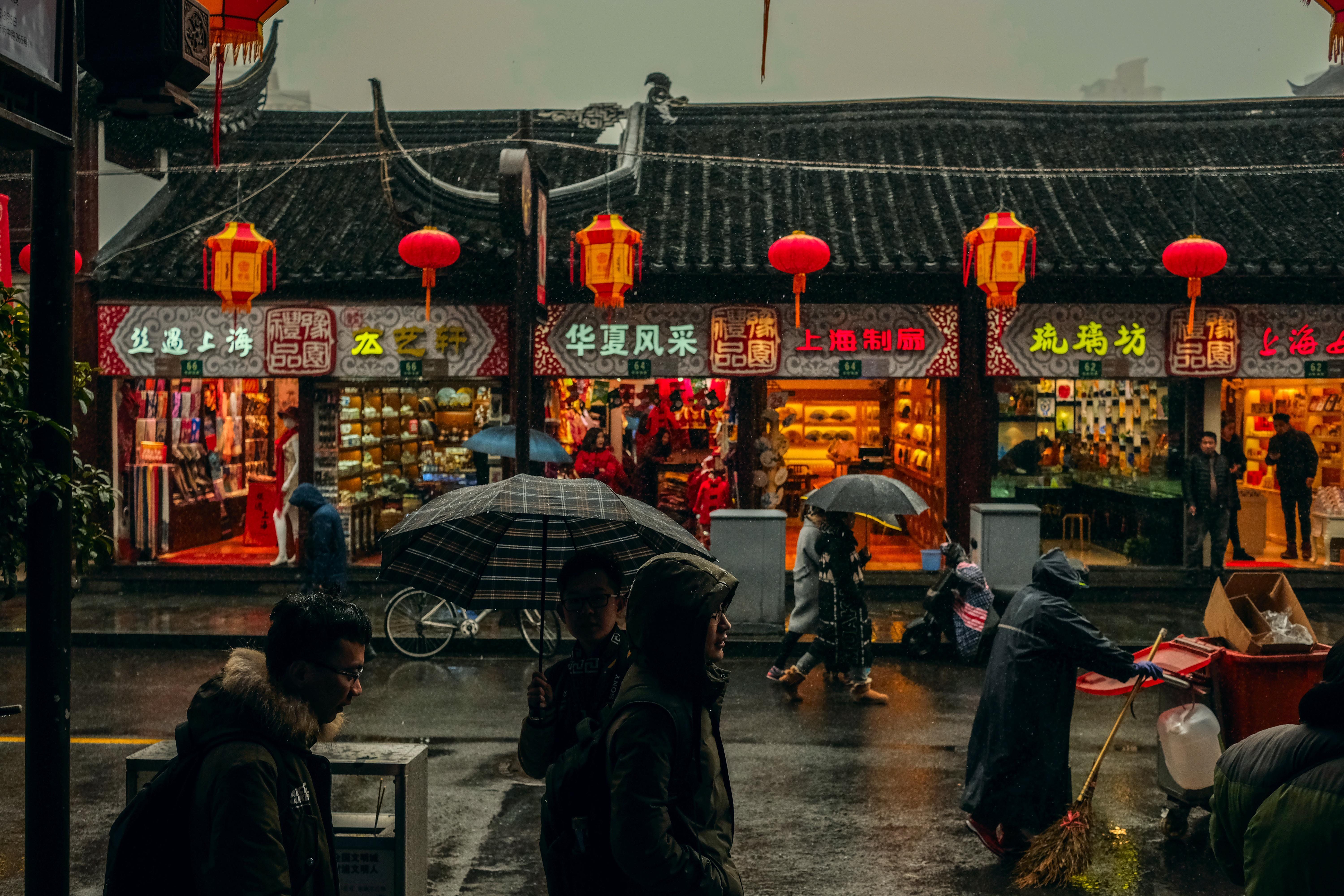How China Is Controlling Hollywood
What "Red Dawn" taught us about defeating Chinese invaders–oops, we mean North Korean.
From Trump threatening to ban TikTok in the US to hordes of angry Americans defending their vituperative rhetoric as "free speech," America is in the midst of a "disinformation war."
But while most concern is (rightfully) centered on misinformation about the global pandemic and the upcoming 2020 election, there's another element of our lives that's being tweaked and manipulated in order to change our perception. A recent report from PEN America, a nonprofit organization that "defends and celebrates freedom of expression," documents how Hollywood has censored itself in order to appease the Chinese Communist Party's strict standards.
As the world's second-largest box office market, China has exerted undue influence over casting, plot, setting, and dialogue–according to the report, titled "Made in Hollywood, Censored by Beijing." Lead author of PEN America's report, James Tager, said, "The Chinese Communist party is increasingly shaping what global audiences see. While we are all well aware of the strict controls that China's government maintains over dissent, independent thought and creativity within its own borders, the long arm of Chinese censorship–powered by vast economic incentives–has also reached deep into Hollywood, shaping perceptions, inculcating sensitivities and reshaping the bounds of what can be shown, said and told."
Among the cited reasons to alter films are criticism of the Chinese government (understandable), "endangerment of social morality" and "undermining social stability" (subjective), and how heroic Bruce Lee is portrayed in a film (just plain picky?).
Just a few of the films that the report cited as having been greatly "self-censored" by studios are MGM's Red Dawn (the originally Chinese antagonists were digitally altered to be North Korean), and Marvel's Dr. Strange (The Ancient One, originally a Tibetan male character in the comic books, was purposefully white-washed with the casting of Tilda Swinton in an effort to not anger Chinese audiences with typecasting).
Perhaps the most infamous example is when creators of Iron Man III (who filmed part of the movie in Beijing and also received an investment from a Beijing-based production company) added scenes to the Chinese version of the film which portrayed Chinese doctors suddenly entering and trying to save Iron Man's life. (Apparently, the edits were so jarring that reviewers dismissed them as blatant pandering). Producers of Iron Man III also allowed "Chinese regulators" on the set to "advise" on some of the creative decisions; in return, they benefited from an optimal release date in China, more freedom to advertise the film, and greater media access. The film made Chinese box office history with an $18 million debut.
But why does it matter if Hollywood films change the nationality of the bad guys or if a comic book character is changed in the live action film?
As the PEN America report states, "Stories shape the way people think, and the stories told by Hollywood reach billions. As an anti-censorship organization dedicated to the celebration of open cultural and artistic expression, PEN America has sought to understand how one of the world's most censorious regimes is extending its influence over the global locus for filmmaking here in the United States, shaping what is perhaps the world's most influential artistic and cultural medium."
First, fear of angering the Chinese totalitarian government has restricted too many filmmakers from making thoughtful sociopolitical criticism or creating meaningful representation in their films. For instance, C. Robert Cargill, writer of the Dr. Strange, noted, "If you acknowledge that Tibet is a place and that [the character is] Tibetan, you risk alienating one billion people who think that that's bullsh*t and risk the Chinese government going, 'Hey, you know one of the biggest film-watching countries in the world? We're not going to show your movie because you decided to get political.'"
The fear of getting "too political" also precludes many projects from being accepted by one of the Big Six Hollywood studios (Walt Disney, Paramount, Sony, Fox, Universal, and Warner Brothers) because the Chinese market has too much profit potential to upset the censors. Other consequences could include plain ostracism; Brad Pitt was banned from China after his starring role in 1997's Seven Years in Tibet due to the film's positive depiction of the 14th Dalai Lama and negative depiction of Chinese military officers.
"I would not underestimate the number of American writers and producers for whom the prospect of getting Chinese money, or making a movie for the Chinese market, has been very tempting," said screenwriter Howard Rodman. "It's more than a decent-sized chunk."
Second, whitewashing is always a problem. As Rob Chan, president of the Asian American Media Group, pointed out in a statement about Dr. Strange's casting of Swinton, "Given the dearth of Asian roles, there was no reason a monk in Nepal could not be Asian." With less than 1% of Hollywood leading roles filled by Asian actors, avoiding casting Asian people in an attempt to not anger Chinese censors is a no-win situation.
So whether or not you're concerned about Chinese app developers having access to your information on TikTok, or if you think using racial slurs is covered under "free speech" (the legal answer is: not always), not even the movies you stream are untouched by social and political issues like diverse representation, state sovereignty (free Tibet!), and fear that Bruce Lee will not be remembered as a badass.
(That's right. China has never released Once Upon a Time in Hollywoodbecause Quentin Tarantino refused to approve a cut of the film that changed how Bruce Lee is portrayed. It's a weird hill to die on, sure. But in the name of creative freedom, we'll take it).
